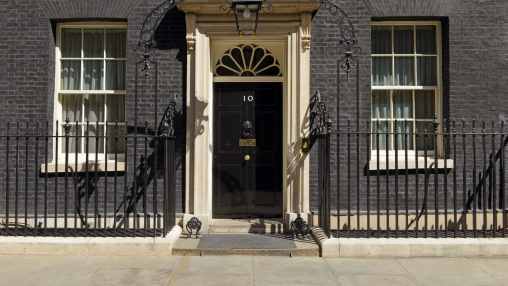
Share this article
Whether or not you voted for him, or shared his political beliefs, “BoJo the Clown” seemed to weather political storms, PartyGates and survive.
Despite making mistakes and being mired in political controversy, Boris Johnson remained in power for over three years.
What was it about him and his larger-than-life leadership style that meant the Conservative party stuck by him and people voted for him? And what can we learn from this style?
Leading cultural psychologist, Gurnek Bains, explored the psychological reasons that Boris Johnson appealed as a leader.
Emotional connection
Whilst we may like to think of ourselves as rational human beings, basing our views of our leaders on facts and competence, we are much more emotionally driven when it comes to decision making about those who lead the country. Boris understood this and played to it. He didn’t fixate on churning out facts, but instead, engaged with us emotionally, and often with very positive optimistic emotion.
When he did make mistakes or things went wrong, he dusted himself off and carried on with his positive emotional attitude.
Often our own unconscious bias can affect our thinking and this emotional connection. Bias is a natural inclination of our minds and neuroscience shows that up to 99% of our thoughts can be unconscious. This can lead to false assumptions about ourselves and others.
In leadership it is important to identify biases, adopt strategies to mitigate unconscious bias and learn from others experience.
Authenticity
There can be no denying Boris Johnson made mistakes, he spoke off the cuff then retracted. Whilst some may feel this led to issues of trust, for others, it gave them a sense that they were dealing with somebody who was authentic, who was fallible like them, who made mistakes and who could change course if they got something wrong. This sense of authenticity is engaging for people.
There was an element of seeing Boris as a peer. This made people respond more favourably to him.
Giving a narrative
Boris gave us a narrative and a story. Psychological research says we respond more to stories, than facts and data. Boris played to a very clear narrative. His narrative was that Britain is a fantastic, exceptional country and we can do great things. The subtext to this narrative is that, even though we face great challenges as a country, with plucky determination and creativity, we can snatch victory from the jaws of defeat.
Throughout the two great challenges of his leadership – Brexit and Covid-19, Boris told a narrative that was coherent, positive and that many people wanted to hear.
It’s interesting to compare Boris to the Labour leader, Sir Keir Starmer. He’s a distinguished lawyer, deals in facts and often makes very pertinent points but one of his challenges is his likeability factor. He doesn’t connect emotionally; he doesn’t hold a clear narrative and doesn’t convey the same positivity.
These three elements are what ultimately draw people to leaders.
But, before the conflict in Ukraine, it looked as though Boris’s hold on power was beginning to slip with both public and party trust being undermined by the revelations of socialising in Downing Street whilst the rest of the country were under strict lockdown rules.
Trust in leadership
However engaging a leader, they should still be held to a high ethical standard. Leaders should not be beyond reproach and should be held accountable for their actions. Particularly when they have set the rules and regulations themselves.
Trust in leadership is essential and leaders need to act with integrity. The more a team trusts its leader, the more effectively it will work as a team.
In 2014, the Institute of Leadership and Management undertook a survey and found that the industries and sectors with the lowest internal trust where the employees didn’t trust their own organisation, had the lowest trust from the public. Distrust breeds distrust.
And this was where Boris Johnson needed to careful. He pushed the trust of his party and the country too far.
Developing rapport helps to establish trust. Boris definitely had rapport but another way to develop trust is to listen and empathise. If Boris was going to rebuild party and public trust, he needed to listen to what was being said and should have empathised with these sentiments. Again, this goes back to building an emotional connection. Boris proved he could dust himself off after making mistakes with a positive attitude, but he was eventually held accountable when we all refocused on his actions during the pandemic and the other factors that ultimately led Boris to losing the support and confidence of his fellow MPs in the lead up to his exit.
Carry on reading > The downfall of Boris Johnson